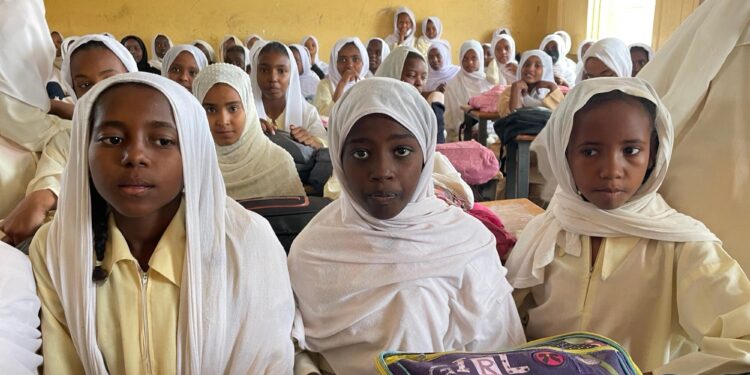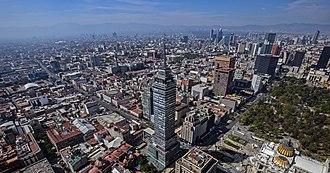Sudan’s Political Shift: African Union Endorses New Prime Minister as a Step Toward Civilian Rule
The African Union (AU) has officially welcomed the recent appointment of Sudan’s new prime minister, viewing it as a pivotal move toward reinstating civilian leadership in a nation long plagued by instability. This endorsement signals the AU’s dedication to promoting democratic governance across Africa and is expected to strengthen efforts aimed at rebuilding Sudan after years marked by military dominance and internal conflict. As global observers continue to track these developments, Sudan’s transition offers hope for sustainable peace and economic revival.
AU Recognizes Appointment as Key Progress in Rebuilding Democratic Governance
The selection of Sudan’s new prime minister has been praised by the African Union as an essential milestone on the road back to civilian administration. This decision resonates deeply with many Sudanese citizens who have yearned for leadership that genuinely reflects their aspirations and needs. The AU highlighted the transitional government’s commitment to fostering political stability through inclusive dialogue among all stakeholders, emphasizing collaboration as vital for overcoming ongoing challenges.
In its official statement, the African Union outlined several priorities expected from this new administration:
- Reinforcing Democratic Frameworks: Establishing transparent institutions that ensure accountability remains paramount.
- Advancing Peace Negotiations: Renewed efforts are needed to resolve persistent conflicts affecting various regions within Sudan.
- Amplifying Civil Society Voices: Inclusion of marginalized groups in policymaking processes is critical for durable governance reforms.
Navigating Complex Obstacles: Challenges Facing Sudan’s Democratic Transition
The AU’s optimism about this political shift is tempered by recognition of significant hurdles ahead. The path toward stable civilian rule is complicated by entrenched issues that threaten progress if left unaddressed. Among these challenges are:
- Diverse Political Fragmentation: A fragmented political landscape complicates consensus-building necessary for effective governance.
- Ongoing Security Concerns: Sporadic violence continues in multiple areas, undermining public confidence and jeopardizing peace efforts.
- Eroding Economic Conditions: Inflation rates exceeding 200% (as reported by recent IMF data) alongside soaring unemployment exacerbate social unrest across urban centers like Khartoum and Omdurman.
Tackling these obstacles requires coordinated action between national leaders and international partners focusing on key strategic areas such as:
- Bolstering Institutional Capacity: Developing resilient governmental bodies capable of enforcing laws impartially will be crucial moving forward.
- Cultivating Grassroots Engagement: Empowering local organizations can foster broader ownership over democratic reforms among citizens nationwide.
- Pursuing Economic Revitalization Initiatives: Targeted investments—particularly in agriculture and infrastructure—could alleviate poverty while stabilizing livelihoods vulnerable populations depend upon.
The Role of Global Partners: Supporting Sudan’s Journey Toward Stability
This appointment presents an opportunity not only domestically but also internationally, inviting renewed engagement from foreign governments, multilateral agencies, and NGOs committed to supporting democratic transitions worldwide. The international community is urged to assist through comprehensive measures including but not limited to:
- Cementing Institutional Independence: Aid programs should prioritize building impartial judicial systems alongside anti-corruption frameworks capable of sustaining rule-of-law principles over time.
- Nurturing Inclusive Governance: A concerted effort must be made to bring diverse political factions together with civil society actors—such as youth movements recently active in Darfur—to forge consensus-driven policies reflecting broad societal interests.[1]
- Spearheading Economic Recovery Programs: Sustained support targeting inflation control measures combined with job creation schemes can help stabilize communities affected most severely during past crises.[2]
[1] See recent reports on youth-led civic initiatives driving change across Darfur regions – UNDP Africa Office (2024).
[2] IMF Regional Outlook Report – Sub-Saharan Africa (2024).
A Collaborative Path Forward: Building Trust Through Partnership
The precarious situation demands sustained diplomatic engagement paired with humanitarian assistance tailored towards addressing immediate needs while laying groundwork for long-term reform. By aligning resources effectively through multilateral cooperation platforms such as the United Nations Integrated Transition Assistance Mission in Sudan (UNITAMS), stakeholders can help bridge gaps between political ambitions and practical implementation.
A unified approach will be instrumental not only in maintaining momentum but also restoring confidence among ordinary citizens weary from decades of upheaval. Transparent monitoring mechanisms coupled with inclusive policy dialogues could serve both domestic reconciliation goals and reassure external partners investing trust—and aid—in this fragile transition period.
Ultimately, success hinges on continuous commitment from all parties involved—from grassroots activists advocating change locally up through regional bodies championing democracy continent-wide—to ensure that this moment marks a genuine turning point rather than another fleeting episode amid ongoing turmoil.
The Road Ahead: Prospects for Lasting Peace & Prosperity in Sudan
The African Union’s backing of the newly appointed prime minister symbolizes more than just a procedural change; it embodies renewed hope amidst adversity—a chance for Sudanese society at large to reclaim agency over its future trajectory after years overshadowed by military rule.
While cautious optimism prevails among analysts observing current trends within Khartoum’s corridors of power, much depends on how effectively emerging leaders navigate entrenched divisions while delivering tangible improvements addressing everyday hardships faced by millions.
As international attention remains focused keenly on this evolving scenario—with media outlets highlighting both progress stories alongside setbacks—the coming months will prove decisive whether this leadership transition translates into meaningful democratization or succumbs once again under pressure from competing interests.
For now, however uncertain some aspects may remain—the appointment stands out clearly as an encouraging signpost pointing toward greater accountability coupled with fresh opportunities aimed at securing peaceable coexistence throughout one of Africa’s most geopolitically significant nations.















